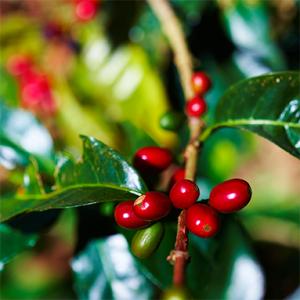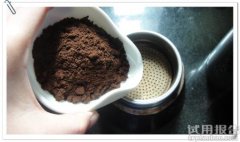Acidity and texture A brief introduction to the characteristics of Coffee Flavor Manor in Xidamo Shaqiso producing area

According to the law, all coffee is sold through an auction held by Addis and DiRedawa. During the coffee harvest, such auctions are even held twice a day.
In Ethiopia, the grading and quality control system of coffee is divided into three levels: producer, regional and national. All coffee is inspected by local inspection agencies before leaving the country of origin, and then re-tested at the coffee inspection and grading centers in Addis and Diredawa to determine its quality grade. Coffee is graded before auction and sale and is important for all groups involved in production, acquisition, export and consumption. Before export, coffee must also be sent to a national quality control agency for inspection to confirm that the origin and color meet the export standards to ensure the reputation of Ethiopian coffee.
At present, Ethiopia's coffee grading and quality control system mainly has two indicators: visual inspection and cup evaluation, including the color, cleanliness, origin, taste and characteristics of coffee beans. The export rating is marked by simple numbers, with the best washed coffee at level 5 and the best sun-cured coffee at level 4. After grading, mark the place of origin and then export. Exports are usually paid by letter of credit, which can not only reduce the risk of foreign exchange collection for exporters, but also give quality assurance to importers.
The export of coffee
Coffee is Ethiopia's most important export cash crop and the main source of Ethiopia's foreign exchange earnings. Ethiopia's coffee exports account for about 3% of the world market, making it the eighth largest coffee exporter in the world. Coffee exports increased steadily from 58000 tons in 1990 to 110000 tons in 1995-1996 and remained at this level in the following years. The export volume exceeded 110000 tons from 2001 to 2002 and reached 127000 tons from 2002 to 2003. As the price of coffee on the international market has been declining for a decade, Ethiopia's foreign exchange earnings have been seriously affected. Before the sharp drop in coffee prices, coffee exports accounted for more than half of Ethiopia's foreign exchange earnings, but now they account for only about 35 per cent. But according to the International Coffee Organization, coffee prices rebounded in 2002, rising from 41 cents per pound in September 2001 to 52 cents per pound in 2002 and 59.7 cents per pound in 2003. The average price in March 2004 was 60.8 cents per pound, an increase of 50% over September 2001. This is excellent news for Ethiopia.
Important Notice :
前街咖啡 FrontStreet Coffee has moved to new addredd:
FrontStreet Coffee Address: 315,Donghua East Road,GuangZhou
Tel:020 38364473
- Prev

A brief introduction to the flavor and taste characteristics of Xidama Coffee Manor in Xidama Coffee Manor
Flavor: berries, tropical fruits, fermented wine, jujube, tea, milk chocolate. The cocoa aroma of medium body, with a hint of spices and tea in the end, is complex and long-lasting, tastes cleaner after cooling, and the balance is more prominent. Cabedo is a small coffee cooperative in a small town in the Dala producing area of Sidamo Province, where every small coffee farmer owns the planting.
- Next

The unique and mellow taste of Sidamo Coffee beans A brief introduction to the characteristics of Xia Qiso producing area
The taste of Sidama in the sun is close to the smell of flowers, but it is about a little earthy. Water washing has a nutty fruit aroma with a slight cocoa aroma, but what the two have in common is smooth taste and viscosity, comfortable and pleasant acidity and fragrance. Light or medium roasting is suitable for individual products, while medium or deep roasting is suitable for blending coffee and good Espresso base. Sidamo coffee raw beans are grayish and thick in some places
Related
- Does Rose Summer choose Blue, Green or Red? Detailed explanation of Rose Summer Coffee plots and Classification in Panamanian Jade Manor
- What is the difference between the origin, producing area, processing plant, cooperative and manor of coffee beans?
- How fine does the espresso powder fit? how to grind the espresso?
- Sca coffee roasting degree color card coffee roasting degree 8 roasting color values what do you mean?
- The practice of lattes: how to make lattes at home
- Introduction to Indonesian Fine Coffee beans-- Java Coffee producing area of Indonesian Arabica Coffee
- How much will the flavor of light and medium roasted rose summer be expressed? What baking level is rose summer suitable for?
- Introduction to the characteristics of washing, sun-drying or wet-planing coffee commonly used in Mantenin, Indonesia
- Price characteristics of Arabica Coffee Bean Starbucks introduction to Manning Coffee Bean Taste producing area Variety Manor
- What is the authentic Yega flavor? What are the flavor characteristics of the really excellent Yejasuffi coffee beans?

